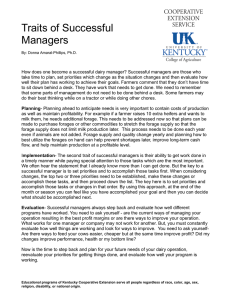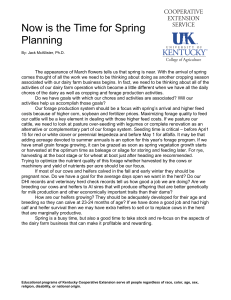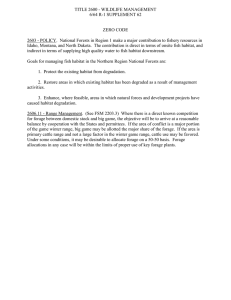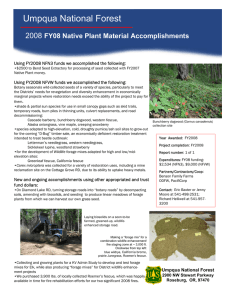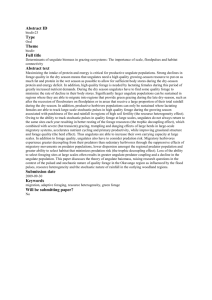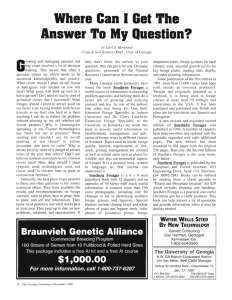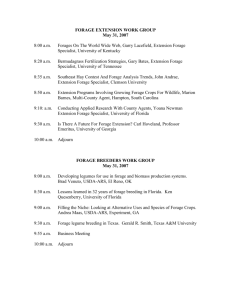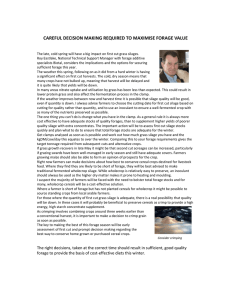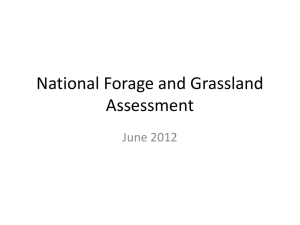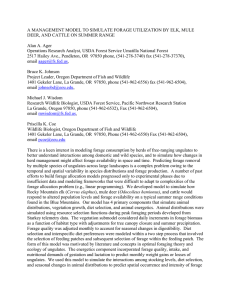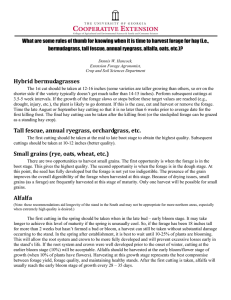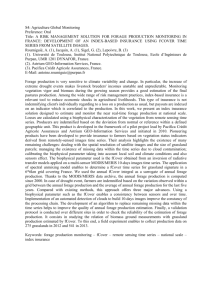Forage Types for Hay: Quality and Quantity Guide
advertisement
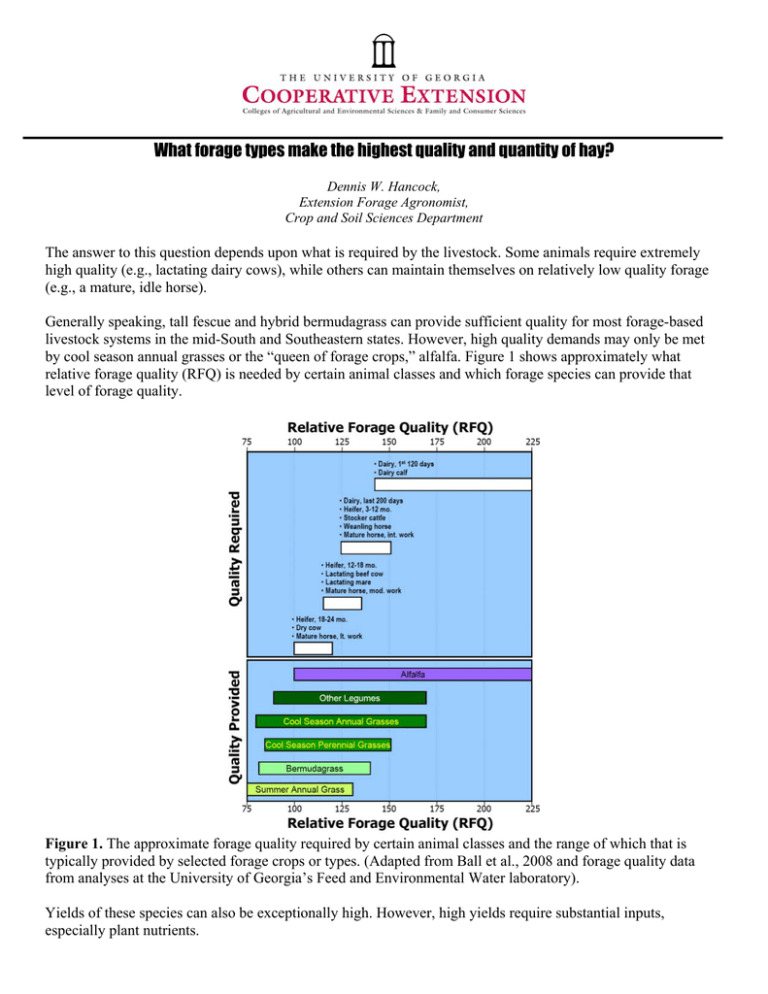
What forage types make the highest quality and quantity of hay? Dennis W. Hancock, Extension Forage Agronomist, Crop and Soil Sciences Department The answer to this question depends upon what is required by the livestock. Some animals require extremely high quality (e.g., lactating dairy cows), while others can maintain themselves on relatively low quality forage (e.g., a mature, idle horse). Generally speaking, tall fescue and hybrid bermudagrass can provide sufficient quality for most forage-based livestock systems in the mid-South and Southeastern states. However, high quality demands may only be met by cool season annual grasses or the “queen of forage crops,” alfalfa. Figure 1 shows approximately what relative forage quality (RFQ) is needed by certain animal classes and which forage species can provide that level of forage quality. Figure 1. The approximate forage quality required by certain animal classes and the range of which that is typically provided by selected forage crops or types. (Adapted from Ball et al., 2008 and forage quality data from analyses at the University of Georgia’s Feed and Environmental Water laboratory). Yields of these species can also be exceptionally high. However, high yields require substantial inputs, especially plant nutrients. The University of Georgia and Ft. Valley State University, the U.S. Department of Agriculture and counties of the state cooperating. Cooperative Extension, the University of Georgia College of Agricultural and Environmental Sciences, offers educational programs, assistance and materials to all people without regard to race, color, national origin, age, gender or disability. CSS-F029 An Equal Opportunity Employer/Affirmative Action Organization Committed to a Diverse Work Force June 2009 Issued in furtherance of Cooperative Extension work, Acts of May 8 and June 30, 1914, The University of Georgia College of Agricultural and Environmental Sciences and the U.S. Department of Agriculture cooperating. J. Scott Angle, Dean and Director.
